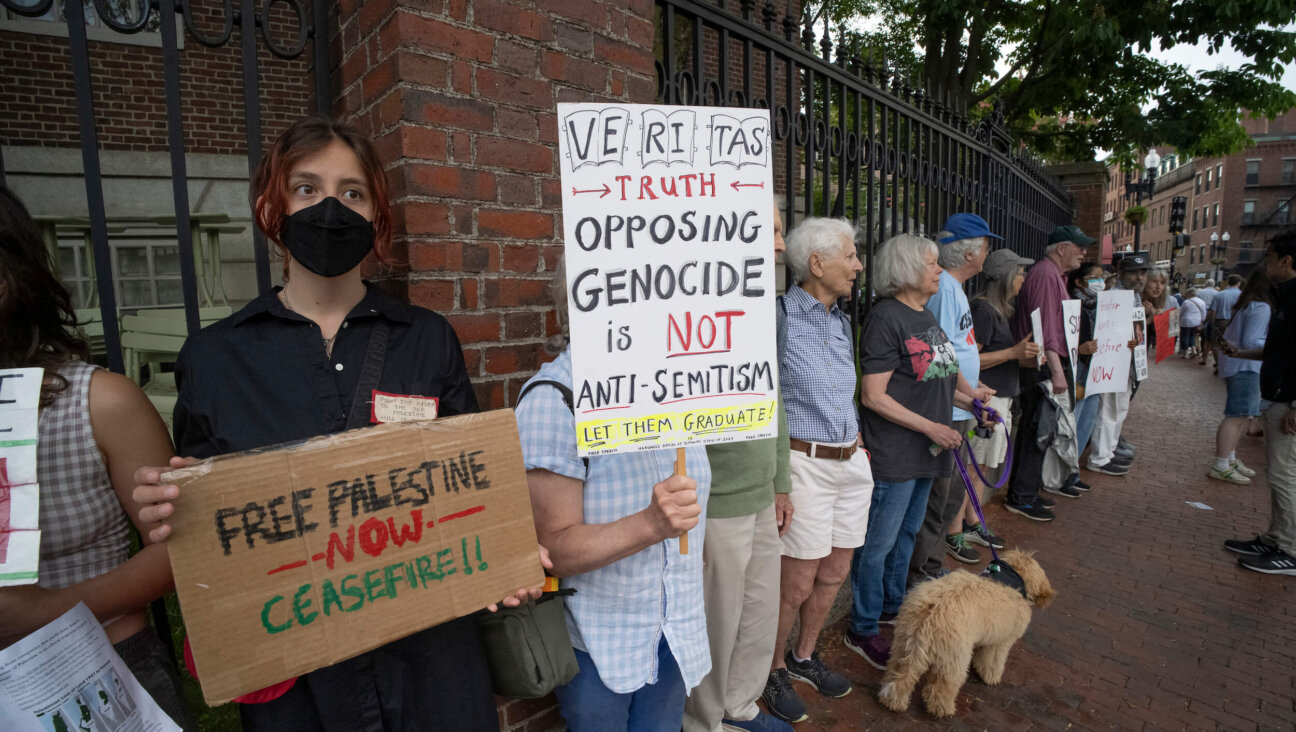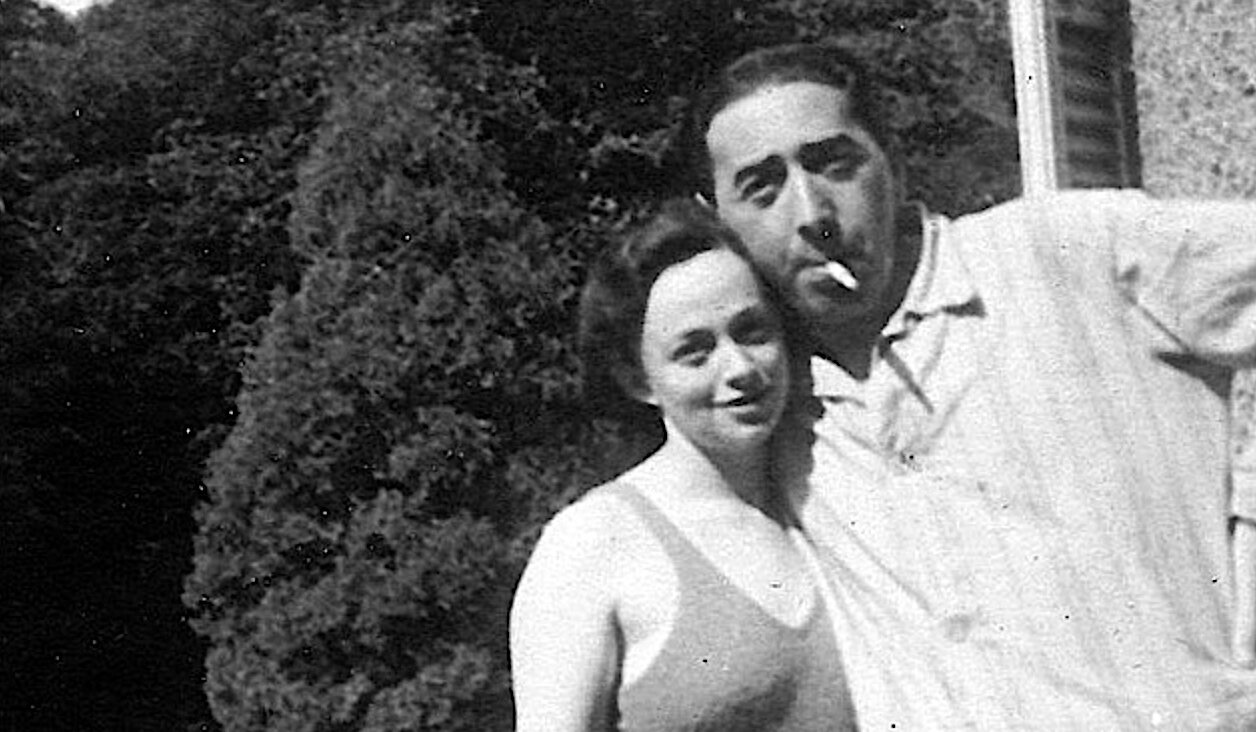The Inadequacy of Reparations, Part I: A Holocaust Orphan’s Daughter Revisits France’s Sinister Past

Prewar Paris. Image by Getty Images
Nineteen, newly married, the check from France must seem like a windfall and a blessing. My parents are still students, accustomed to scrimping and saving and doing without. The check is for $2,000, a lot of money in 1957, especially for a bride who tried to scoop up and save the rice that was thrown in celebration at her City Hall wedding ceremony.
My mother doesn’t remember exactly what the check was for, though she thinks it was related to her father’s military service. He’d fought for France in WWII before France surrendered. After that, he was in the French Resistance, until his capture and execution at the tail end of the war. My mother was six years old when he was killed, living with her paternal aunt and uncle.
I knew about the check from my mother. I knew, too, that she hadn’t been allowed to mourn her father, whom she adored. For a long time after the war, my mother believed she saw her father in crowds, on the street, across packed auditoriums. Even after she was married and had my brother and me, these sightings occurred. I imagine that the check must have felt like a wedding gift from her father at a moment when his absence at her side would’ve been felt acutely. Wouldn’t it feel to her as if he’d offered his blessing for her new marriage?
I planned to write a short story about this situation, embellishing as I do when transforming facts into fiction. I never wrote that story because real life intervened. As I researched military benefits and reparation payments, I stumbled across information that suggested my mother, as an orphan of the Holocaust, was eligible for reparations under Prime Minister Lionel Jospin’s decree of July 7, 2000. The decree states that any French or foreign person who lost one or both parents because they died in a camp in France or in deportation or were shot when the person was not yet 21 was eligible for a settlement or a pension. The phrasing gives pause. The final possibility is the most concrete, graphic. Or maybe it only feels this way, as this is the how my grandfather died. He was taken with 119 other political prisoners from Montluc prison in Lyon to the grounds of an old fort near Saint-Genis-Laval, shot execution-style then thrown into the caretaker’s cottage, which was then burned to the ground. It was a hot day, according to reports, and the Germans and their collaborators drank confiscated champagne once their work was done.
I called my mother up and sent her the link while we talked. She assumed that the long-ago check disqualified her, but the only stipulation in Jospin’s decree was that the orphan hadn’t received life compensation money from Germany or Austria. It took several months, but eventually my mother received word that her application had been approved. She had to decide whether she wanted a lump sum or a monthly payment, and she had to arrange direct deposit with her local bank. Such ordinary things: phone calls with bank receptionists, the completion of forms, photocopying, and posting envelopes. In a certain way, the banality of these tasks speaks to the inadequacy of reparations, and sets in relief the stubborn facts: people die and can’t be returned to us. My mother doesn’t get her father back or regain a life in which she is the apple of his eye, the cherished daughter. How differently her life — and mine — might have unfolded if the history had been different.
I wonder if this is part of why some survivors and their descendants refuse reparations. The money functions as a reminder of all they’ve lost, the impossibility of its return. In an interview with Kenneth Jost, published in CQ Researcher, survivor Alicia Appelmann-Jurman says, “I do not want my father’s teeth. I do not want his medal, and I do not want my earrings. Let them be where they are.” From my family, I understand this desire to leave the past behind, but I’ve also come to see how unruly memory is, how insistent.
Rachel Hall is the author of Heirlooms, (BkMk Press) which was selected by Marge Piercy for G.S.Sharat Chandra book prize. Her stories and essays appear in such journals as The Gettysburg Review, Lilith, Guernica Daily, and LitHub. Follow her at www.rachelhall.org and @Rach_H_writer.
The Forward is free to read, but it isn’t free to produce

I hope you appreciated this article. Before you go, I’d like to ask you to please support the Forward.
At a time when other newsrooms are closing or cutting back, the Forward has removed its paywall and invested additional resources to report on the ground from Israel and around the U.S. on the impact of the war, rising antisemitism and polarized discourse.
Readers like you make it all possible. We’ve started our Passover Fundraising Drive, and we need 1,800 readers like you to step up to support the Forward by April 21. Members of the Forward board are even matching the first 1,000 gifts, up to $70,000.
This is a great time to support independent Jewish journalism, because every dollar goes twice as far.
— Rachel Fishman Feddersen, Publisher and CEO
2X match on all Passover gifts!
Most Popular
- 1

Film & TV What Gal Gadot has said about the Israeli-Palestinian conflict
- 2

News A Jewish Republican and Muslim Democrat are suddenly in a tight race for a special seat in Congress
- 3

Fast Forward The NCAA men’s Final Four has 3 Jewish coaches
- 4

Culture How two Jewish names — Kohen and Mira — are dividing red and blue states
In Case You Missed It
-

Fast Forward ‘Another Jewish warrior’: Fine wins special election for U.S. House seat
-

Fast Forward Cory Booker proclaims, ‘Hineni’ — I am here — 19 hours into anti-Trump Senate speech
-

Opinion In Trump’s war against campus antisemitism, hate the tactics but don’t ignore the problem
-

Yiddish כ׳בענק נאָך די וועלטלעכע ייִדן וואָס האָבן אָפּגעריכט אַ טראַדיציאָנעלן סדר Longing for those secular Jews who led a traditional seder
מײַן פֿעטער יונה האָט נישט געהיט שבת און כּשרות אָבער בײַם אָפּריכטן דעם סדר האָט ער געקלונגען ווי אַ פֿרומער ייִד
-
Shop the Forward Store
100% of profits support our journalism
Republish This Story
Please read before republishing
We’re happy to make this story available to republish for free, unless it originated with JTA, Haaretz or another publication (as indicated on the article) and as long as you follow our guidelines.
You must comply with the following:
- Credit the Forward
- Retain our pixel
- Preserve our canonical link in Google search
- Add a noindex tag in Google search
See our full guidelines for more information, and this guide for detail about canonical URLs.
To republish, copy the HTML by clicking on the yellow button to the right; it includes our tracking pixel, all paragraph styles and hyperlinks, the author byline and credit to the Forward. It does not include images; to avoid copyright violations, you must add them manually, following our guidelines. Please email us at [email protected], subject line “republish,” with any questions or to let us know what stories you’re picking up.















